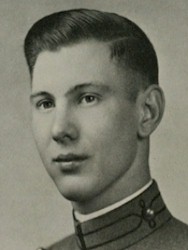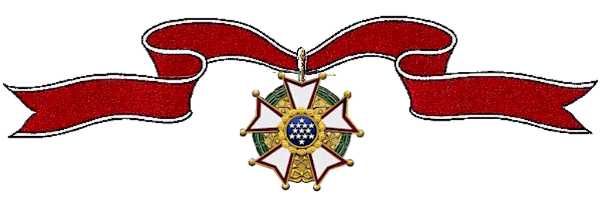William Lewis graduated from the U.S. Military Academy at West Point, Class of 1946. He retired in 1976 as a U.S. Army Colonel.

–
Born:
,
Home:
,
Buried:
,
Cemetery:
Awards Received
-

Legion of Merit
-

Legion of Merit
-

Legion of Merit
-

Silver Star
-
Legion of Merit

United States Military Academy Register of Graduates(Citation Needed) – SYNOPSIS: Colonel (Infantry) William Warner Lewis, Jr. (ASN: 0-28433), United States Army, was awarded a Second Bronze Oak Leaf Cluster in lieu of a Third Award of the Legion of Merit for exceptionally meritorious conduct in the performance of outstanding services to the Government of the United States as Commanding Officer, Fort Wainwright, Alaska, from 1973 to 1976. The singularly distinctive accomplishments of Colonel Lewis culminate a long and distinguished career in the service of his country and his dedicated contributions reflect the highest credit upon himself and the United States Army.
-
Legion of Merit

United States Military Academy Register of Graduates(Citation Needed) – SYNOPSIS: Colonel (Infantry) William Warner Lewis, Jr. (ASN: 0-28433), United States Army, was awarded the Legion of Merit for exceptionally meritorious conduct in the performance of outstanding services to the Government of the United States as Deputy Commanding Officer, Headquarters, Area Command, in the Republic of Vietnam in 1969. The singularly distinctive accomplishments of Colonel Lewis and his dedicated contributions in the service of his country reflect the highest credit upon himself and were in keeping with the highest traditions of the United States Army.
-
Legion of Merit

United States Military Academy Register of Graduates(Citation Needed) – SYNOPSIS: Colonel (Infantry) William Warner Lewis, Jr. (ASN: 0-28433), United States Army, was awarded a Bronze Oak Leaf Cluster in lieu of a Second Award of the Legion of Merit for exceptionally meritorious conduct in the performance of outstanding services to the Government of the United States as Deputy Commanding Officer, Fort Wainwright, Alaska, from 1970 to 1973. The singularly distinctive accomplishments of Colonel Lewis and his dedicated contributions in the service of his country reflect the highest credit upon himself and were in keeping with the highest traditions of the United States Army.
-
Silver Star
Service:
United States ArmyRank:
Captain (Infantry), [then First Lieutenant]Batallion:
2d BattalionRegiment:
38th Infantry RegimentDivision:
2d Infantry DivisionAction Date:
September 18 & 19, 1952
Headquarters, 2d Infantry Division, General Orders No. 133 (April 22, 1953)The President of the United States of America, authorized by Act of Congress July 9, 1918, takes pleasure in presenting the Silver Star to Captain (Infantry), [then First Lieutenant] William Warner Lewis, Jr. (ASN: 0-28433), United States Army, for gallantry in action as a member of Company G (then Company E), 38th Infantry Regiment, 2d Infantry Division, in action against an armed enemy on 18 and 19 September 1952 in the vicinity of Chorwon, North Korea. On the night of 18 September 1952, Company E was moving forward in the attack on Hill 266, a strategic, strongly held enemy position more commonly known as “OLD BALDY”. As the lead platoon advanced toward the objective they suddenly became entrapped in a vicious ambush which threatened to break up the friendly unit’s attack. Undaunted by the heavy enemy small arms and mortar fire, Captain Lewis, with complete disregard for personal safety, moved forward to the ambush area and began reorganizing his unit. Although painfully wounded in this action, he remained with his men and successfully led them from the ambush. Returning to the Main Line of Resistance, the friendly unit regrouped and obtained fresh supplies of ammunition and on the afternoon of 19 September 1952, they were led by Captain Lewis in a concentrated attack on the objective. As they met the initial resistance, Captain Lewis, subjecting himself to deadly enemy fire, went from man to man, assuring himself that they were prepared for anything that might occur. In the assault, his relentless determination was responsible for getting the men to greater efforts in the midst of savage enemy fire. Just when the attack would appear to be waning, his inspirational guidance would keep the men moving on. Upon reaching the crest of the hill, the small group remained there in defensive positions for approximately two hours, continually under a vehement hail of enemy mortar, artillery, and small arms fire. Captain Lewis’ aggressive action inflicted numerous enemy casualties and made easier a subsequent successful capture of the objective the next morning. The gallantry and selfless devotion to duty exhibited by Captain Lewis on this occasion reflects great credit on himself and the military service.

